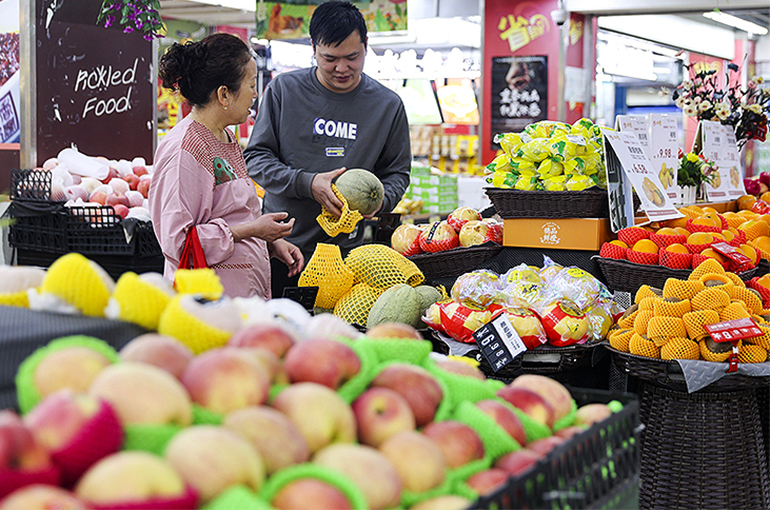 China’s Consumer Inflation Quickens in July
China’s Consumer Inflation Quickens in July(Yicai) Aug. 9 -- China’s consumer inflation rose at the fastest pace in the past five months in July, according to the latest official data.
The consumer price index inched up 0.5 percent last month from a year earlier, up for the sixth straight month, according to data released by the National Bureau of Statistics today. The CPI came in higher than the 0.35 percent average prediction from China-based chief economists polled by Yicai earlier this month.
After a 0.8 percent fall in January, the CPI gained 0.7 percent in February, 0.1 percent in March, 0.3 percent in May and April, and 0.2 percent in June.
The annual growth rate of the CPI expanded in July thanks to the continued recovery of demand, as well as the impact of high temperatures and heavy rainfalls in some areas, said Dong Lijuan, a senior statistician at the NBS.
Food prices soared 2.1 percent in June from the same period last year and remained unchanged in July, NBS data also showed. Non-food prices rose 0.7 percent last month, down 0.1 percentage point from the increase in the previous month.
Pork prices continued to rise faster in July from the month before than in June, while vegetable and fruit prices declined slower due to the heavy rainfalls, said Wang Qing, chief macroeconomic analyst at Golden Credit Rating International. These two factors led to the overall increase in food prices last month, he noted.
Food prices will surge in the second half of the year due to seasonal factors, so their drag on the CPI will weaken, Wu Chaoming, deputy director of the Chasing Institute, told Yicai.
Services prices are expected to continue to rise, but household income and consumption expectations will likely need time to recover, Wu noted, adding that low inflation will continue for the rest of this year.
The CPI will probably grow 0.4 percent this year and more than 1 percent at the end of the year, Wu estimated.
Producer Price Index
According to data from the NBS, China’s producer price index fell 0.8 percent in July from a year earlier, the same as in June, mainly because of insufficient demand and falling commodity prices globally.
The PPI decline was in line with the forecast of 0.81 percent from China-based chief economists polled by Yicai earlier this month
The Chinese real estate market remained sluggish, as it is difficult for the situation to improve in such a short period of time, Wu said.
The PPI will not post growth until the end of this year, or even longer, Wu predicted, adding that the PPI will fall around 1.4 percent this year.
Editor: Futura Costaglione